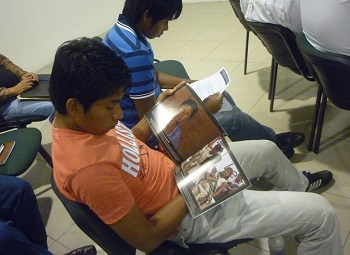Lesson Learned: Especially effective was the traveling photo exhibition, “Being Indigenous in the City,” displayed in 19 cultural centers, public and private, and visited by more than 10,000 people. One thousand copies of the exhibition brochure were distributed, and the initiative was followed by the media. A second showing of the exhibition traveled to six municipalities in Chiquitianía.
 UNDEF/Bolivia
UNDEF/Bolivia